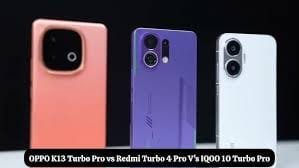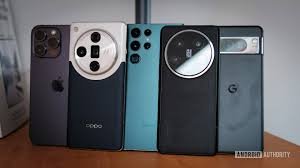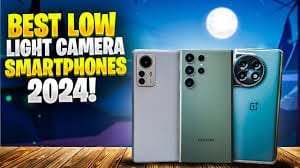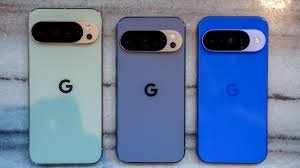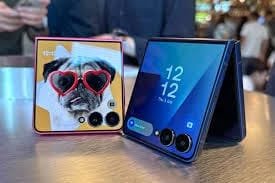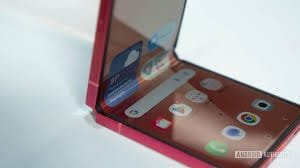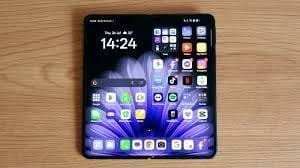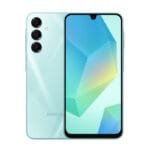The battle for smartphone supremacy rages on, and in Kenya’s vibrant tech landscape, the clash between Apple’s iPhones and Samsung’s Galaxy devices is a headline event. As we move into 2025, the question remains: which brand reigns supreme? At Mobihub Electronics, we’re immersed in this dynamic market, and this in-depth analysis will explore the key factors influencing Kenyan consumers’ choices, dissect the strengths and weaknesses of each brand, and offer insights into the future of this epic rivalry.
A Market Ripe with Opportunity:
Kenya’s mobile market is booming. Driven by increasing internet penetration, a young and tech-savvy population, and the rise of mobile money, smartphone adoption is accelerating rapidly. This creates a fertile ground for both Apple and Samsung to compete for market share. However, the Kenyan market presents unique challenges and opportunities. Price sensitivity is a major factor, with many consumers seeking value for their money. Furthermore, the availability of after-sales service and support plays a crucial role in brand loyalty.
The Allure of the iPhone Ecosystem:
Apple’s iPhones have a powerful allure, built on a foundation of brand prestige, a seamless user experience, and a robust ecosystem. For many Kenyans, owning an iPhone is a status symbol, representing a connection to a global community of tech enthusiasts. The iOS operating system is known for its intuitive interface, smooth performance, and strong security features. The tight integration between Apple devices, from iPhones and iPads to MacBooks and Apple Watches, creates a compelling ecosystem that keeps users within the Apple universe.
Strengths of the iPhone in Kenya:
- Brand Prestige: The Apple logo carries significant weight in Kenya, signifying quality, innovation, and status.
- User Experience: iOS is renowned for its ease of use, making iPhones accessible to a wide range of users.
- Ecosystem Integration: The seamless connection between Apple devices is a major draw for users invested in the Apple ecosystem.
- Resale Value: iPhones tend to hold their value better than many Android devices, making them a good investment for some consumers.
- Security: iOS is known for its strong security features, protecting users from malware and data breaches.
Weaknesses of the iPhone in Kenya:
- Price: iPhones are generally more expensive than comparable Android devices, which can be a barrier for price-sensitive consumers in Kenya.
- Limited Customization: iOS offers less customization than Android, which may not appeal to users who like to personalize their devices.
- Repair Costs: iPhone repairs can be expensive, and finding authorized service centers in Kenya can be challenging in some areas.
- App Store Restrictions: The App Store has stricter guidelines than the Google Play Store, which can limit the availability of certain apps.
Samsung’s Android Advantage:
Samsung has carved a significant niche in the Kenyan market by offering a diverse range of Android devices at various price points. The Galaxy lineup caters to everyone from budget-conscious consumers to those seeking flagship-level performance. Samsung’s strength lies in its wide selection, competitive pricing, and the open and customizable nature of the Android operating system.
Strengths of Samsung in Kenya:
- Price Range: Samsung offers a wide range of devices at different price points, catering to a broader segment of the Kenyan market.
- Variety: The Galaxy lineup includes a variety of models with different features and specifications, giving consumers more choices.
- Customization: Android offers a high degree of customization, allowing users to personalize their devices to their liking.
- Open Ecosystem: The Android ecosystem is open and flexible, with a vast selection of apps available on the Google Play Store.
- Availability of Service Centers: Samsung has a wider network of authorized service centers in Kenya, making repairs and support more accessible.
Weaknesses of Samsung in Kenya:
- Brand Perception: While Samsung is a well-respected brand, it doesn’t carry the same level of prestige as Apple in Kenya.
- Software Updates: The frequency and duration of software updates can vary across different Samsung models, which can be a concern for some users.
- Performance Variability: The performance of Samsung devices can vary significantly depending on the model and price point.
- Overlapping Product Lineup: The sheer number of Samsung models can be confusing for consumers, making it difficult to choose the right device.
Key Factors Influencing Kenyan Consumers in 2025:
- Price Sensitivity: Cost remains a major consideration for many Kenyan consumers. Value for money is crucial.
- Availability of After-Sales Service: Reliable after-sales support and accessible service centers are essential for building brand loyalty.
- Mobile Money Integration: Seamless integration with mobile money platforms like M-Pesa is vital in Kenya’s mobile-first economy.
- Data Plans and Network Coverage: Affordable data plans and reliable network coverage are critical for smartphone adoption and usage.
- Local Content and Apps: The availability of local content and apps tailored to the Kenyan market is becoming increasingly important.
The Future of the Rivalry:
The battle between iPhone and Samsung in Kenya is far from over. Both brands will continue to innovate and compete for market share. Apple is likely to focus on maintaining its brand prestige and ecosystem advantage, while Samsung will continue to leverage its diverse product portfolio and competitive pricing.
Mobihub Electronics’ Perspective:
At Mobihub Electronics, we’re committed to providing Kenyan consumers with the best selection of smartphones and electronics. We understand the unique needs and preferences of the Kenyan market, and we strive to offer a wide range of devices from both Apple and Samsung, as well as other leading brands. Our goal is to empower consumers with the information and choices they need to make informed decisions about their tech purchases.
Conclusion:
In 2025, the choice between iPhone and Samsung in Kenya ultimately comes down to individual preferences and priorities. Both brands offer compelling devices with their own strengths and weaknesses. Price, availability of after-sales service, and specific features are likely to be the key factors influencing Kenyan consumers’ decisions. As the Kenyan mobile market continues to evolve, Mobihub Electronics will be there to provide the latest devices, expert advice, and exceptional customer service. We believe that informed consumers make the best choices, and we’re dedicated to empowering Kenyans with the knowledge they need to navigate the exciting world of smartphones.








